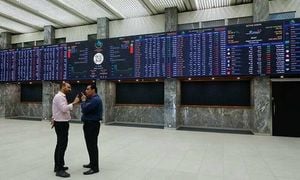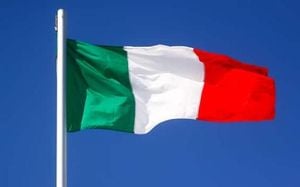Pope Francis's final moments have been recounted by Professor Sergio Alfieri, the director of the Department of Medical and Surgical Sciences at the Gemelli Polyclinic in Rome, who coordinated the team that treated the Pope. In an interview with Repubblica, Alfieri revealed that the Pope had expressed a wish to avoid "therapeutic obstinacy" during his treatment.
Alfieri explained that had Pope Francis lost consciousness, they would have had to follow the directives of his personal health assistant, Massimiliano Strappetti, whom the Pope regarded as a son. Alfieri noted that Strappetti was "the person he trusted most, but sometimes he struggled too." This trust was evident in the way the Pope interacted with Strappetti, especially as he approached the end of his life.
Alfieri further elaborated in a separate interview with Corriere della Sera that returning to work was part of the Pope's therapy. He stated, "He never exposed himself to dangers," highlighting the Pope's determination to fulfill his duties until the very end. This was particularly evident during Easter, when Pope Francis accepted Strappetti's suggestion to greet the crowd in the square, demonstrating his commitment to his role.
On the morning of April 21, 2025, just hours before his death, the Pope woke up at 5 a.m. to ask for a glass of water. Alfieri recounted that after turning on his side, the nurse noticed something was amiss. Upon Alfieri's arrival, he found the Pope with his eyes open but unresponsive, already in a coma. Alfieri shared, "I realized that there was nothing more to be done. He was in a coma." This stark realization came as the team grappled with the gravity of the situation.
Alfieri, who had been caring for the Pope since 2021, recalled their last meeting, which occurred the Saturday before Easter. During this visit, he brought the Pope a tart, and the Pope had cheerfully stated, "I'm very well." This was a stark contrast to the critical condition he would soon find himself in.
The professor first met Pope Francis in 2018, three years prior to the first of two "secret" surgeries that the Pope underwent. These surgeries were pivotal in managing the Pope's health issues, which had become more pronounced in recent years. Alfieri's deep involvement in the Pope's care has given him a unique perspective on the challenges faced by the Holy Father.
As Alfieri reflected on the circumstances surrounding the Pope's death, he suggested that the cause could have been "one of those strokes that take you away in an hour, perhaps an embolus that blocked a blood vessel in the brain. Perhaps there was a hemorrhage." He noted that such events can occur to anyone, but they pose a greater risk to the elderly, particularly those who are less active.
The news of Pope Francis's passing has resonated deeply within the Catholic community and beyond. His leadership and compassionate approach to his role have left a lasting impact. Alfieri's insights into the Pope's final days shed light on the personal struggles and the profound bond between the Pope and his caregivers.
In the wake of the Pope's death, many are reflecting on his legacy and the significant moments that defined his papacy. From his emphasis on mercy and compassion to his efforts in promoting interfaith dialogue, Pope Francis's influence has been felt worldwide. His passing marks the end of an era and poses questions about the future direction of the Catholic Church.
As the world mourns the loss of Pope Francis, tributes have poured in from leaders and followers alike, celebrating his life and contributions. The Pope's commitment to social justice, care for the marginalized, and environmental stewardship has inspired many to take action in their communities.
The transition to a new pope will be closely watched, with many anticipating how the next leader will address the challenges facing the Church in a rapidly changing world. The conclave tasked with electing the new pope will be a critical moment in determining the future path of the Catholic Church.
In the coming days, as the Vatican prepares for the funeral and memorial services, the global Catholic community will come together to honor Pope Francis's life and legacy. His teachings and example will continue to guide many in their faith journeys.
Ultimately, Pope Francis's approach to leadership—rooted in humility, compassion, and a deep sense of service—will be remembered as a hallmark of his papacy. As the world reflects on his contributions, it is clear that his impact will be felt for generations to come.
In a time of uncertainty and change, Pope Francis's message of hope and love remains a beacon for many, reminding us of the importance of community, compassion, and care for one another.




